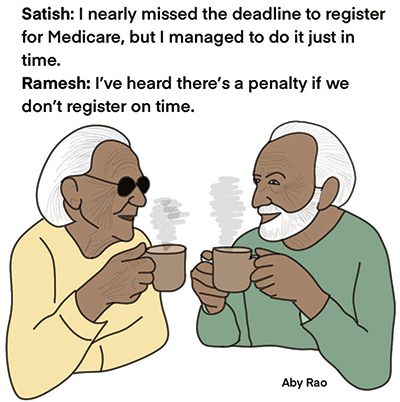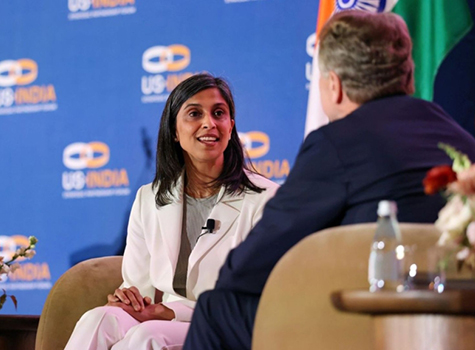
We can enroll for Medicare health insurance when we reach the age of 65. It comes with a series of decisions that we must make along the way, for making the most of this healthcare coverage available to us. Getting it wrong can mean costly coverage gaps and occasionally lifetime late enrollment penalties. This happens because the rules can be often confusing, conflicting, and hard to follow.
The good news is that plenty of help is available from Medicare as well as many other volunteer organizations and the only thing that is needed is usually a head start from you, the applicant or future Medicare member. You also need to seriously burrow into the information that is available out there to make the right decision for yourself and your spouse. Below are some of the crossroads that you will come across and need to know how to navigate.
Medicare does not initiate, generally, to entice/encourage you to sign up at your age of 65. If you have claimed your Social Security at least four months before your age of 65, then you get enrolled automatically into Medicare.
The reason for this, simply, is that Medicare and SSA work very closely together and if SSA has your information then Medicare also does, and they will urge you or your spouse to sign up.
 If you have not started with SSA, then Medicare will not have your records, and they will not nudge you to sign up and you must remember to make it all happen. You usually get three months before and three months after your birthdate as a safe period to make your application for Medicare. I would start the process during the three months before and not wait until after your birthday has passed. The reason is very simple; give the Government agency enough time to process your paperwork, especially if any information is missing or wrong and needs to be gathered or corrected.
If you have not started with SSA, then Medicare will not have your records, and they will not nudge you to sign up and you must remember to make it all happen. You usually get three months before and three months after your birthdate as a safe period to make your application for Medicare. I would start the process during the three months before and not wait until after your birthday has passed. The reason is very simple; give the Government agency enough time to process your paperwork, especially if any information is missing or wrong and needs to be gathered or corrected.
Now the first confusion arises if you are approaching 65 and are still planning to continue to work. Most Corporations will still cover you for the medical insurance, but they will make themselves the secondary insurer and will make Medicare the primary. Hence you still will end up going through the process of initiating the application for Medicare for yourself. It is best if you sit down with the right people where you work and gather the necessary information as to how they see it and how they wish you to act on it.
You should still go through the enrollment process even if your corporation keeps itself as primary (a rare case) or if you do not wish to start Medicare now (perhaps you are on your spouse’s insurance); that way you will avoid the penalty later, because you are starting Medicare later than the age of 65.
It is important that you are registered with Medicare at 65 even if you do not begin their coverage. This way the late penalty is avoided.
You are automatically enrolled in Part A and Part B (except in Puerto Rico) when you initiate your application. Medicare Part A covers hospitalization, skilled nursing care, some home health care and hospice benefits. Part B covers Doctors and outpatient services. Most people need both Part A and Part B. But if you have qualifying health insurance from your own or spouse’s employer then, as I mentioned earlier, you can delay signing up for Part B without penalty.
Once you apply and get qualified then Part A is free, but you must pay a monthly premium for Part B. For 2024 the starting premium per month per person is $174.70 if for a single person the Modified AGI is under $103,000 ($206,000 for married filing jointly); these numbers come from the 1040 tax return you filed.
It is important to know and worth noting that this premium continues to increase as the MAGI goes up and the max premium one person can end up paying is $594.00 per person. It happens because Congress passed laws in early 00s when the premiums were linked to the income, and it is generally known as IRMAA effect.
This was the main reason I had devoted a whole article to this a few months ago, discussing how it behooves us to reduce the untaxed income before our age of 65.
Do we need part D prescription coverage? Medicare does not automatically cover prescription drugs, but you can get Part D prescription drug coverage, for a price, from private Medicare-approved insurers.
Even if you are not on any medications, you may need to get Part D when you enroll in Medicare to avoid a late enrollment penalty. Part D is unnecessary if you have other drug coverage that is at least as good as Part D.
This ‘creditable coverage’ does not even have to be from a current employer; it can also be from other approved retiree coverages. It is worth noting that if you do not sign up for Part D within two months of creditable coverage, you could incur a late enrollment penalty which can be substantial.
One of the biggest mistakes many make is assuming that Medicare will pay all their medical expenses. Absolutely not so. Regardless of how they get their medical coverage, there are always costs coming out of your pocket, such as monthly premiums (I mentioned this above), deductibles and co-insurance or co-pay per visit.
Here are some examples:
Part A has a hospital deductible of $1,556 (2022) before benefits begin and you will owe part of the cost for inpatient hospitals stays longer than 60 days in a benefit period and more after that.
Part B has deductibles of $233 (for 2022) and 20% of the Medicare approved amounts for the outpatient services.
Some retirees have additional health insurance to cover these costs. People who do not should consider buying Medicare supplemental health insurance; they are called Medigap policies.
There are generally two options available for getting Medicare coverage: the original program run by the Government, or a Medicare Advantage plan run through a private insurer. Everything we talked about here so far is for the original Medicare program.
In the Medicare Advantage plan your additional coverage comes from a private insurer, usually for a fee but many times it is either paid by your employer or they absorb it. The advantage plan must provide and cover the original Medicare and more such as, dental, vision and hearing care which is not covered by the original plan.
One big difference between the two plans is that some Advantage plans have their own provider networks, and you cannot get out of that except for emergencies.
There is no lack of information available on this subject (books, articles, pamphlets, lectures) and hence you will find that if you need more information, it is readily available.
Luckily, plenty of free help is available too just for asking and I must say at the time of new enrollment (or change of plans) period during the last quarter of each year, there are many very knowledgeable people volunteer their time and energy to give you the right help for you to make the right decisions.
Mo Vidwans is an independent, board certified financial planner. For details visit, vidwansfinancial.com, call 734-476-0579 or write to: mvfinancial@yahoo.com



